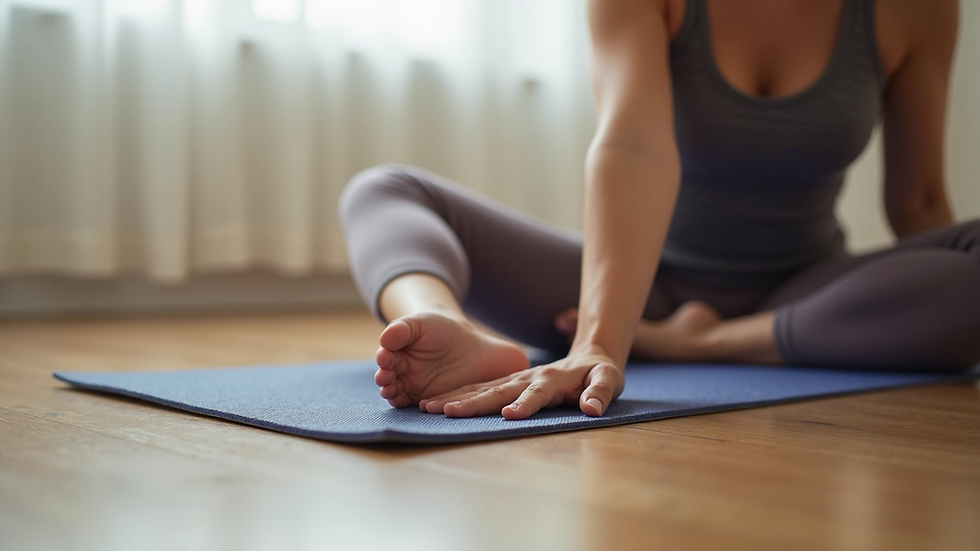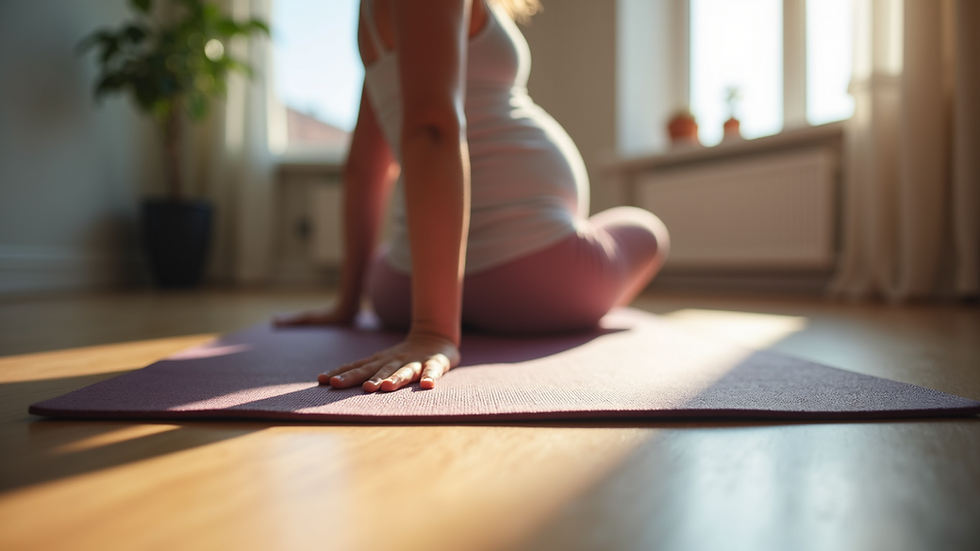Top Tips for Postpartum Recovery: A Physiotherapist's Guide
- Jennifer Wenman
- 4 days ago
- 4 min read
Bringing a new life into the world is a beautiful experience, but it can also be incredibly challenging for new mothers. The postpartum period is a time of significant change, both physically and emotionally. Many women may feel overwhelmed as they navigate their recovery while caring for a newborn. This guide aims to provide practical tips for postpartum recovery, focusing on the role of physiotherapy in helping mothers regain strength and confidence.
Understanding Postpartum Recovery
Postpartum recovery refers to the physical and emotional healing process that occurs after childbirth. This period can last several weeks to months, depending on various factors, including the type of delivery and individual health conditions.
During this time, a woman's body undergoes numerous changes. Hormonal fluctuations, physical stress from labor, and the demands of caring for a newborn can all impact recovery. Understanding these changes is crucial for new mothers as they embark on their healing journey.
The Role of a Physiotherapist
A physiotherapist can be an invaluable resource during postpartum recovery. They specialize in understanding the body's mechanics and can provide tailored exercises and advice to help mothers regain strength and mobility.
Here are some key areas where a physiotherapist can assist:
Pelvic Floor Health: Many women experience pelvic floor issues after childbirth. A physiotherapist can guide exercises to strengthen these muscles, reducing the risk of incontinence and pelvic pain.
Core Strengthening: Pregnancy and childbirth can weaken core muscles. A physiotherapist can recommend safe exercises to rebuild core strength, which is essential for overall stability and posture.
Pain Management: Some women may experience pain in their back, hips, or joints after giving birth. A physiotherapist can provide techniques to alleviate this discomfort and improve mobility.
Tips for Postpartum Recovery
1. Prioritize Rest
After childbirth, your body needs time to heal. Prioritizing rest is essential for recovery.
Sleep When the Baby Sleeps: This classic advice holds true. Take advantage of nap times to recharge.
Ask for Help: Don’t hesitate to lean on family and friends for support. Whether it’s cooking meals or watching the baby, every bit helps.
2. Stay Hydrated and Nourished
Proper nutrition and hydration play a vital role in recovery.
Drink Plenty of Water: Staying hydrated helps with milk production and overall health. Aim for at least eight glasses a day.
Eat Balanced Meals: Focus on whole foods, including fruits, vegetables, lean proteins, and whole grains. These will provide the energy you need to care for your baby.
3. Gentle Movement
While rest is important, gentle movement can also aid recovery.
Start with Walking: Short walks can help improve circulation and boost your mood. Start with 10-15 minutes and gradually increase the duration.
Postnatal Exercises: Once cleared by your healthcare provider, consider gentle postnatal exercises. A physiotherapist can guide you through safe movements that promote healing.
4. Focus on Your Pelvic Floor
Your pelvic floor has been through a lot during childbirth.
Kegel Exercises: These exercises can help strengthen pelvic floor muscles. Start with a few repetitions each day, gradually increasing as you feel comfortable.
Breathing Techniques: Incorporate deep breathing exercises to engage your pelvic floor. Inhale deeply, then exhale while gently contracting your pelvic muscles.
5. Seek Professional Guidance
Don’t hesitate to reach out to a physiotherapist for personalized advice.
Initial Assessment: A physiotherapist can assess your physical condition and create a tailored recovery plan.
Follow-Up Sessions: Regular sessions can help track your progress and adjust your exercises as needed.
Emotional Well-Being
Postpartum recovery is not just about physical healing. Emotional well-being is equally important.
Talk About Your Feelings: Share your experiences with friends, family, or a support group. Connecting with others can help alleviate feelings of isolation.
Practice Self-Care: Take time for yourself, even if it’s just a few minutes a day. Whether it’s reading a book or taking a warm bath, self-care is essential for mental health.
When to Seek Help
While some discomfort is normal after childbirth, certain symptoms may indicate a need for professional help.
Persistent Pain: If you experience ongoing pain in your back, hips, or pelvic area, consult a physiotherapist.
Incontinence Issues: If you have trouble controlling your bladder or bowels, seek guidance from a healthcare professional.
Emotional Distress: If feelings of sadness or anxiety persist, consider speaking with a mental health professional.
Building a Support Network
Creating a support network can significantly enhance your postpartum experience.
Join a Postpartum Group: Many communities offer support groups for new mothers. These can provide a safe space to share experiences and advice.
Connect with Other Moms: Building friendships with other new mothers can create a sense of camaraderie and support.
Embracing the Journey
Postpartum recovery is a unique journey for every woman. It is essential to embrace this time and be patient with yourself.
Celebrate Small Wins: Acknowledge your progress, no matter how small. Each step forward is a victory.
Stay Positive: Focus on the joys of motherhood, even amidst the challenges. Surround yourself with positivity and encouragement.
Final Thoughts
Postpartum recovery is a journey filled with ups and downs. By prioritizing rest, seeking professional guidance, and building a support network, new mothers can navigate this period with greater ease. Remember, it is okay to ask for help and take the time you need to heal.
Your body has accomplished something incredible, and it deserves the care and attention necessary for a full recovery. Embrace this new chapter with confidence, knowing that you are not alone on this journey.



Comentarios